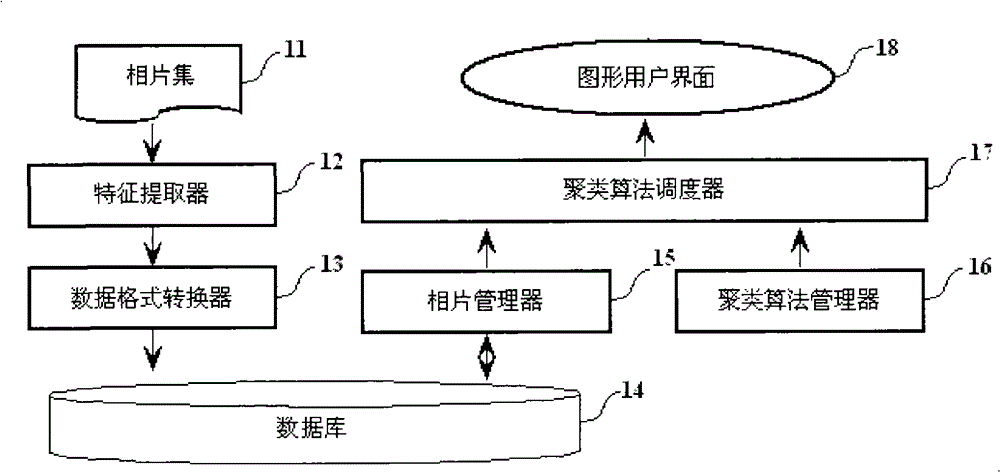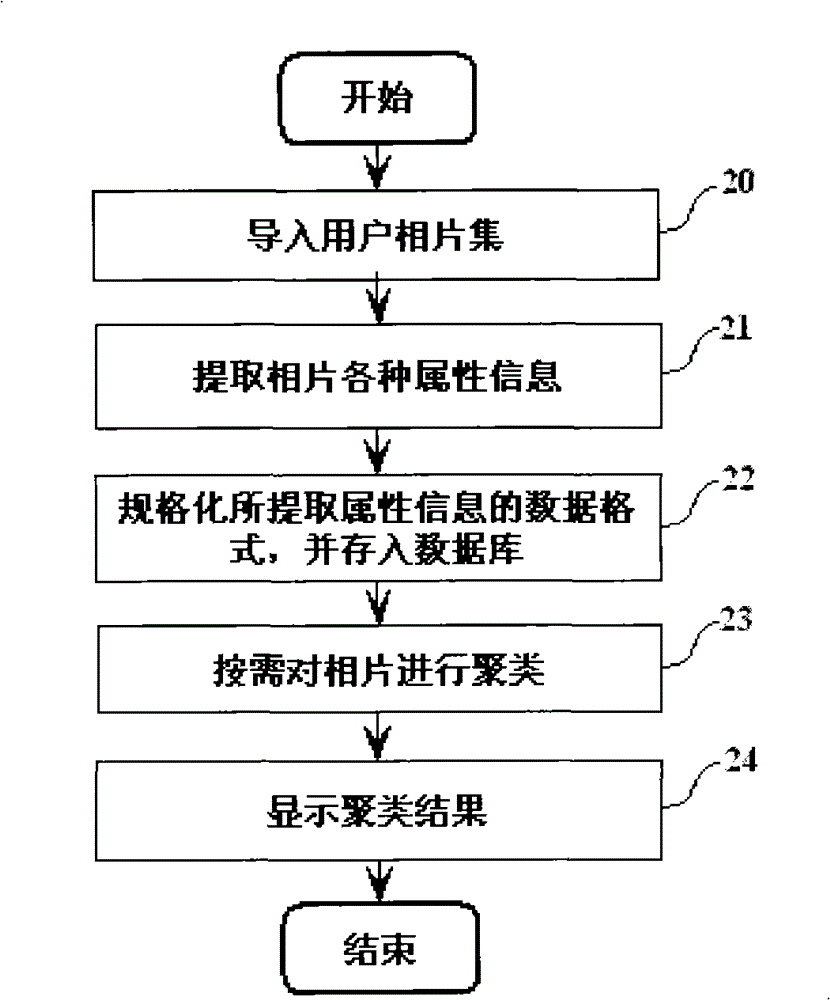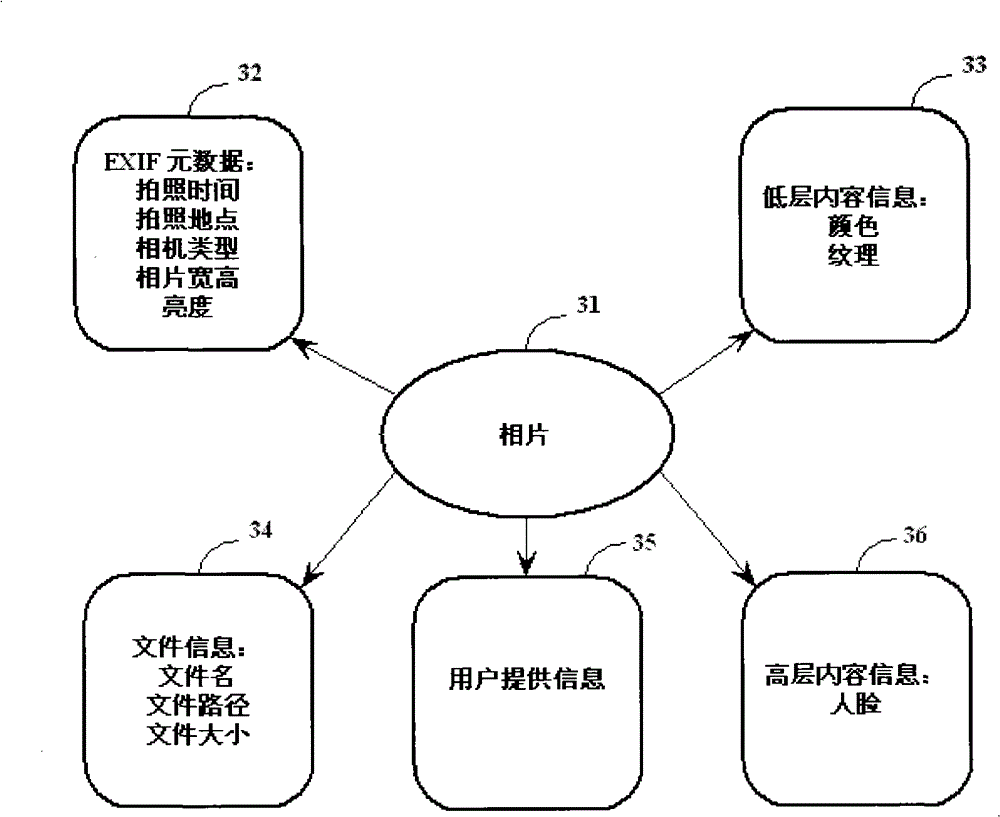Method for implementing automatically clustering photographs, apparatus and system
An automatic clustering and clustering method technology, applied in the field of digital processing, can solve the problems of complex photo sources, indistinguishable time information, and difficulty in obtaining clusters.
- Summary
- Abstract
- Description
- Claims
- Application Information
AI Technical Summary
Problems solved by technology
Method used
Image
Examples
no. 1 example
[0061] This embodiment illustrates the process of implementing only one photo clustering method.
[0062] Figure 4 A flowchart showing the processing flow of a simple photo clustering method. Before starting to cluster the photos, it is necessary to read the attribute information of all photos from the database, and these attribute information are stored in the photo entity class of the photo manager 15 (abbreviated as photo objects, the same below). The initialized photo object is regarded as a cluster, which is cached in the photo manager and waits for the next step of processing.
[0063] Step 40, first obtain the photo objects included in the specified cluster from the cache of the photo manager.
[0064] Step 41, arrange these photo objects according to the time when they were taken, and regard each photo object as an initialization cluster. Assuming that there are a total of N photos at this time, record their numbers as C 1 , C 2 ,...,C N , followed by the process...
no. 2 example
[0090] This embodiment illustrates that the user specifies several photo clustering methods to be nested and executed in sequence.
[0091] Figure 5 Shows the flow chart of the processing flow for specifying several photo clustering methods to be nested and executed in order, that is, Figure 5 Describes the process of invoking and executing the photo clustering method 23 on demand.
[0092] In step 51, after the photo manager caches the photo objects that need to be organized and managed, these initialized photo objects will be regarded as an initial cluster before starting to perform clustering, and then in step 52, the user can specify to nest and execute K Photo clustering method. What needs to be explained here is that the system provides the names of all photo clustering methods in the form of a drop-down list. The user only needs to select the K photo clustering methods according to the name and specify their execution order, and the system will automatically follow ...
no. 3 example
[0096] This embodiment illustrates that the system recommends several photo clustering methods to be nested and executed in sequence.
[0097] Sometimes the sources of photo collections are complicated, and it is difficult for users to judge how to schedule these photo clustering methods to obtain the best clustering effect. The system needs to automatically select a suitable photo clustering method after analyzing the photo collection to help users divide these photos. The process is as follows:
[0098] The system divides the photo attributes into three priorities, among which the first priority has the highest priority, the first priority is the second, and the third priority is the lowest. The priority of the attributes above the same priority is weakened from left to right, as follows:
[0099] First priority: time, space, camera type and user provided information
[0100] Second priority: color, texture, face and brightness
[0101] The third priority: width and heigh...
PUM
 Login to View More
Login to View More Abstract
Description
Claims
Application Information
 Login to View More
Login to View More - Generate Ideas
- Intellectual Property
- Life Sciences
- Materials
- Tech Scout
- Unparalleled Data Quality
- Higher Quality Content
- 60% Fewer Hallucinations
Browse by: Latest US Patents, China's latest patents, Technical Efficacy Thesaurus, Application Domain, Technology Topic, Popular Technical Reports.
© 2025 PatSnap. All rights reserved.Legal|Privacy policy|Modern Slavery Act Transparency Statement|Sitemap|About US| Contact US: help@patsnap.com



